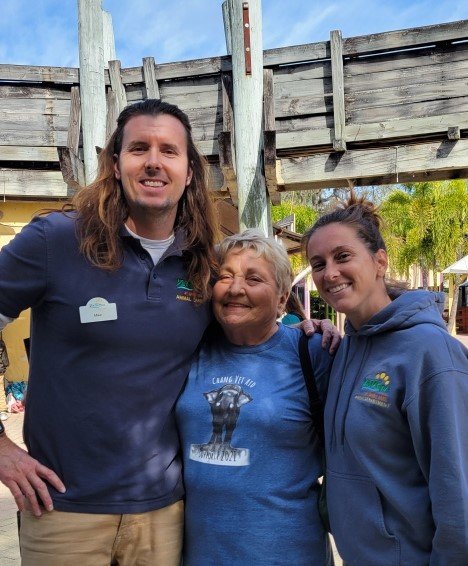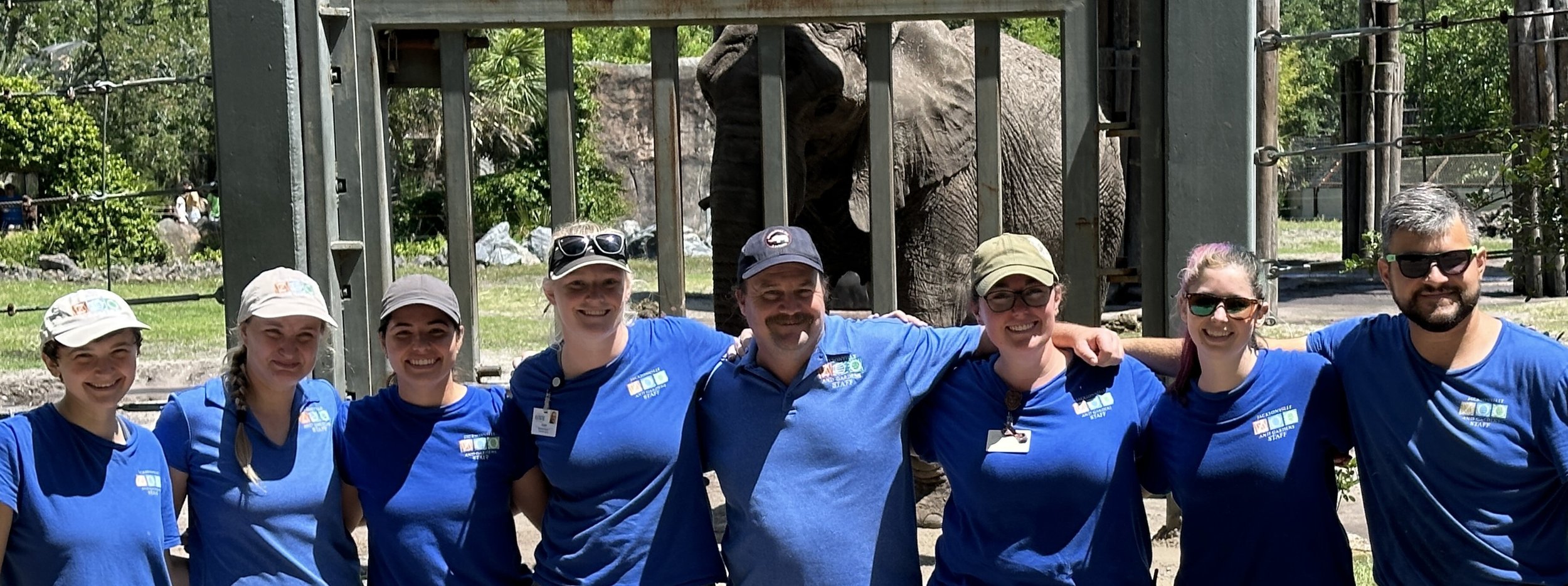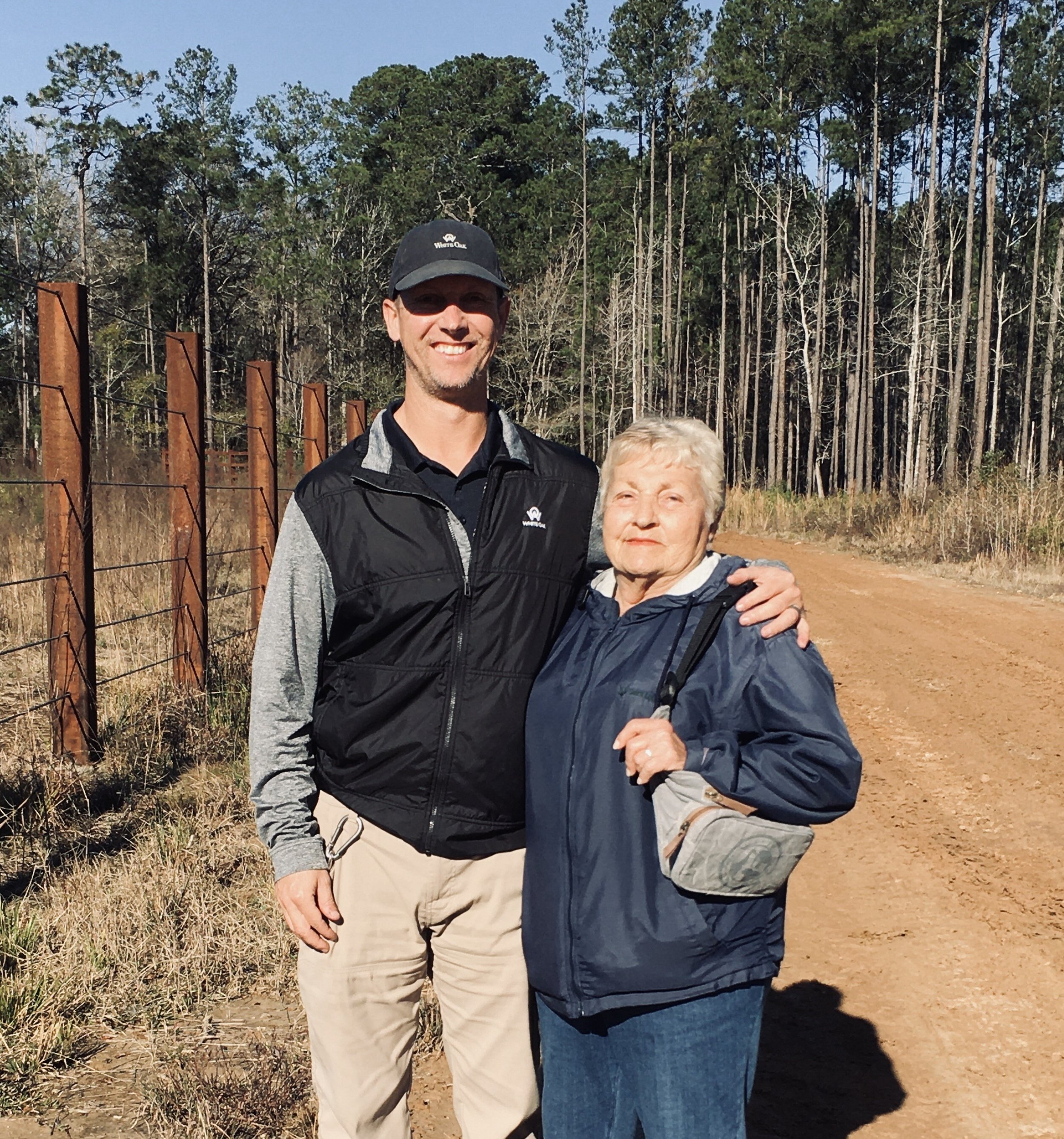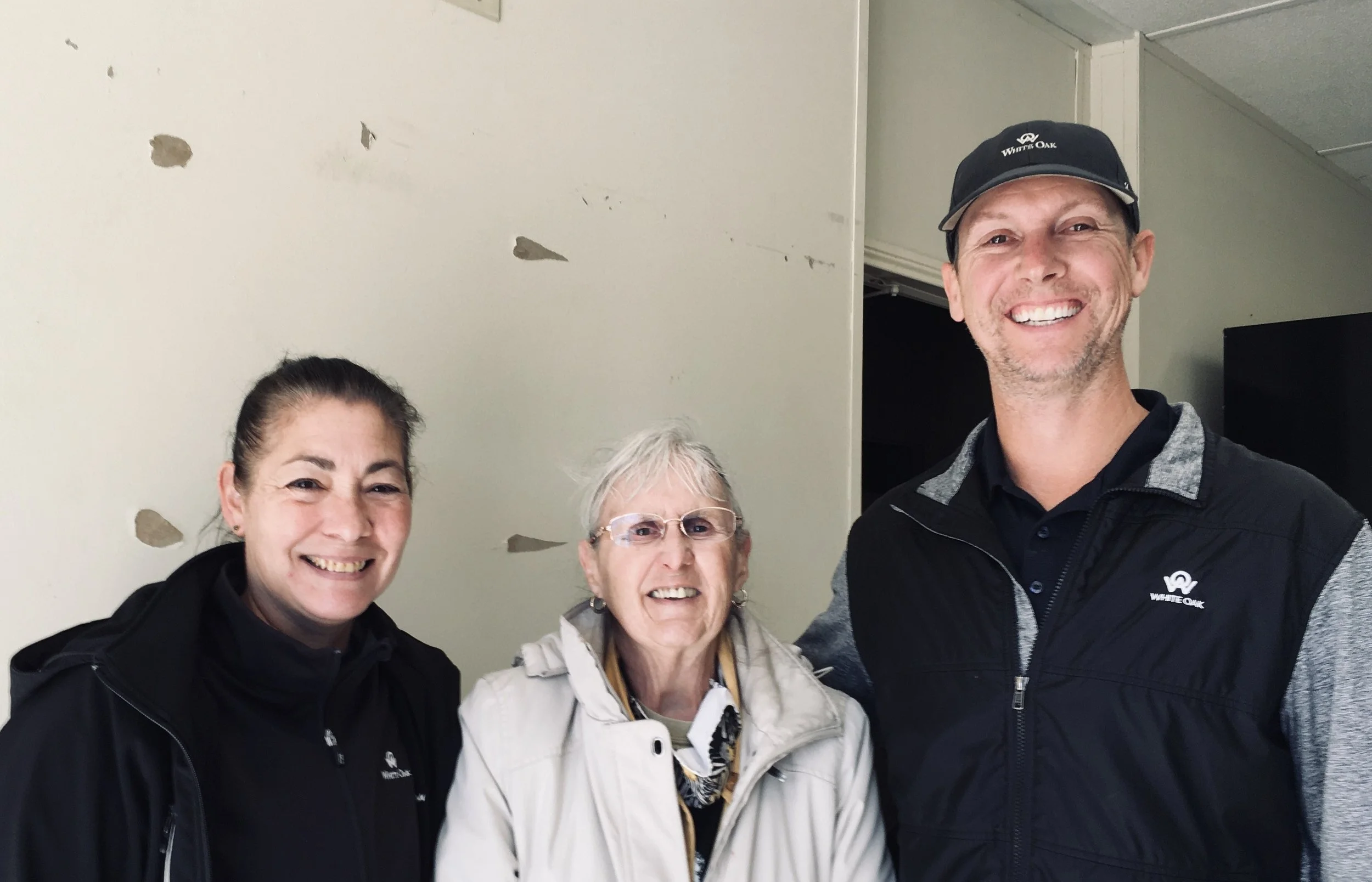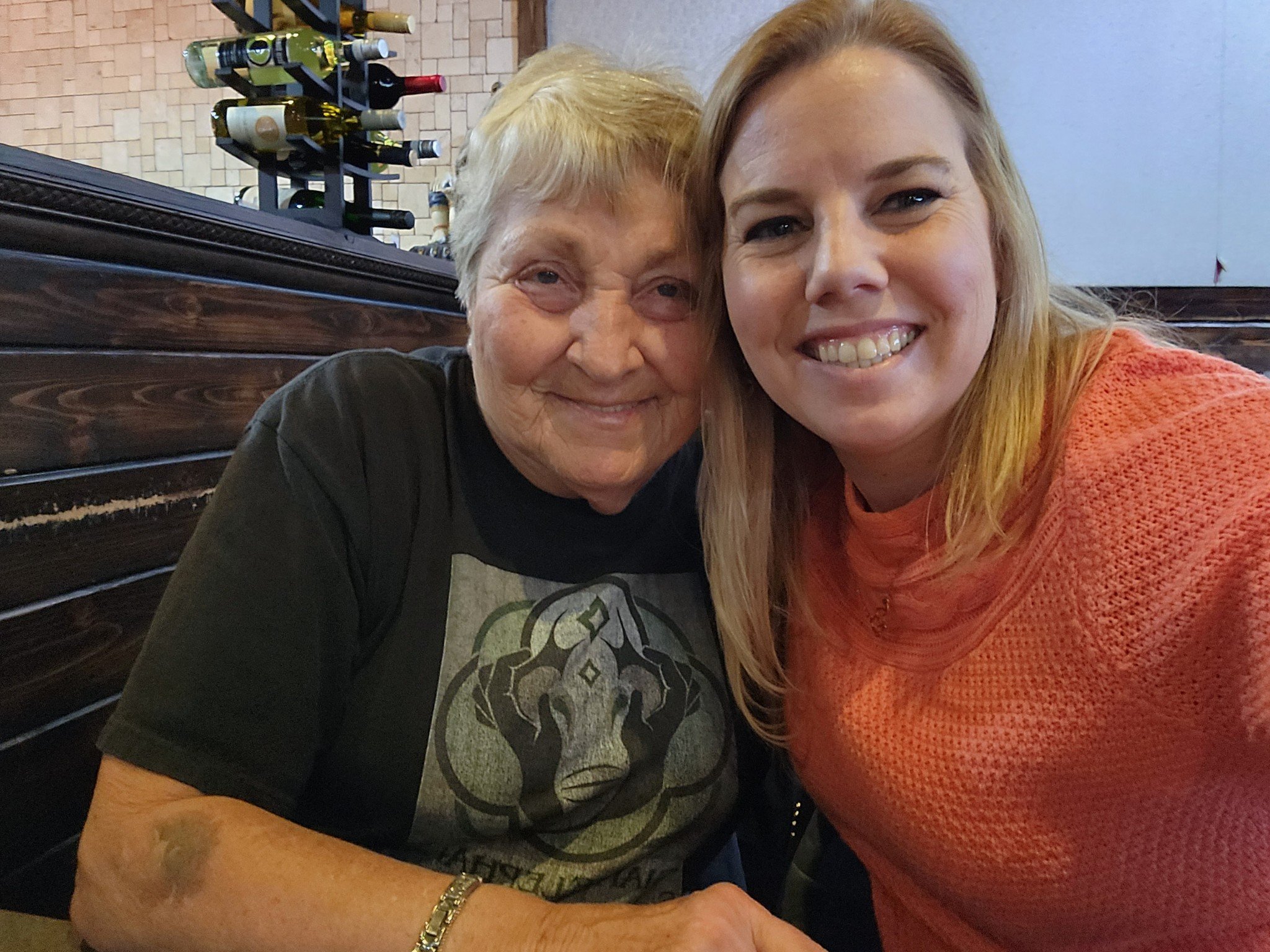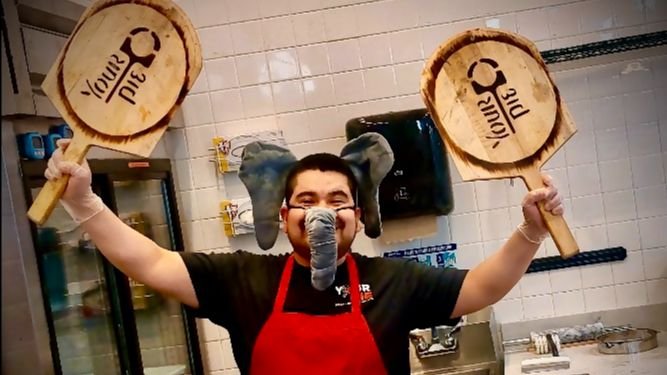This past January, AES President Linda Reifschneider, along with AES Volunteer Cynthia Christison, pointed Linda’s CRV southeast and began another road trip to say hello and thanks to some of AES’s wonderful supporters.
Their first stop was January 24th at ZooTampa at Lowry Park. It was great to say hello and thanks in person to Christi Reiter and Mike Burns. Linda first met Christi some years ago in St. Louis, and she has hosted a California Pizza Kitchen (CPK) fundraiser for AES ever since relocating to Tampa. Mike has been at Tampa ‘forever’ and stays amazingly slender (all that good elephant barn work?) in spite of the annual pizza pig out! Thank you Christi and Mike and all at ZooTampa who support AES every April with Pizza for Pachyderms!
(L-R) Elephant Enthusiast, Chris Wiberg,with AES Volunteer, Cynthia Christison, AES President, Linda Reifschneider and ZooTampa's Associate Curator of Elephants, Christi Reiter
On the 25th, Linda and Cynthia stopped by Dr. Mark Wilson’s Florida International Teaching Zoo. Always good to see what is new and going on there. His two very personable spotted hyenas, Charlie and Babe, are definitely Linda’s favorites. Then they all headed up to Two Tails Ranch for a visit and lunch in Williston with Dr. Mark and Two Tails owner Patricia Zerbini, who does an excellent elephant educational program for both school groups and the general public.
Jacksonville Zoo Team (L-R) Sabrina B., Shelby G., Amber G., Katie C., Corey N., Charley S., Zoey W., and Nicholas H.
The 26th found Linda and Cynthia at the Jacksonville Zoo where they shared lots of hugs and smiles with so many friends who have had AES’s back annually hosting great CPK events. They had time to talk, a visit with the Zoo’s elephants and then spent the rest of the afternoon visiting the Asian area of their zoo and a most enjoyable train ride – a great way to end a most enjoyable day! Thanks to all at Jacksonville!
Linda (center) with Jacksonville Elephant Keeper, Susan H. & Sheena
Thanks to Nick Newby for a great visit and overview of the White Oak Conservation Center in Yulee, Florida on the 27th. After years of planning and construction, it was good to see how all the effort is coming together for the Asian elephants that have ‘unpacked their trunks’ at their new home. The remainder of the day was spent on the road with an evening destination in Macon, Georgia.
Cynthia (center) with Debbie & Nick from White Oak Conservation Center in Yulee, FL
The 28th was a full day at Zoo Atlanta and Linda and Cynthia could not have had a better host than Kelly Garner. It is always appreciated when AES is asked to give a presentation about how we came to be and the work we do. At Zoo Atlanta they had a great audience and a wonderful zoo visit, including a neat meet and greet with a charming lady-hippo!
Last day – January 29th – found Linda and Cynthia having lunch with Jennifer Wu at a lovely Indian restaurant. A good warm-up for Linda’s upcoming trip to Delhi, India, for the International Union for the Conservation of Nature’s Asian Elephant Specialist Group (thankfully usually written: IUCN AeSG!) meeting. Linda met Jennifer when the Nashville Zoo hosted the Elephant Managers Association Conference in 2015. She stepped up at that gathering and offered to be a host for our CPK event and hasn’t missed a year since, even though her career path has changed and her family has grown. Ahem, most recently by giving a forever home to a lucky Rizzy, a pooch in need that she offered to foster temporarily! One lucky pooch!
Linda with Jennifer Wu, a long-time supporter and host for Pizza for Pachyderms
The 30th they pointed the CRV toward St. Louis and another wonderful AES road trip will join the many before it and hopefully many still to come. Asian Elephant Support is so fortunate to have supporters all across the country. We could not be us without YOU! Thank you most sincerely for your dedication to the Today and Tomorrow of Asian elephants, of all elephants! And, thanks again, to Cynthia Christison for always being ready to pack a suitcase and keep Linda company as they rack up more miles saying hello and thank you to so many wonderful friends!

